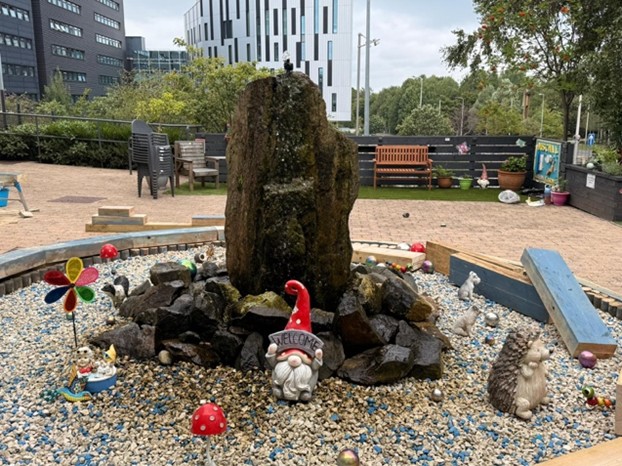On the 3rd September 2025 at InSpace in central Edinburgh, the Binks Hub staged its largest exhibition yet, Poverty, precarity and community empowerment: Who decides?
The exhibition was a showcase of the research outputs produced by ourselves and our partners across a wide range of projects which drew upon a methodology of participatory social research with artistic and creative methods and practices. All of the projects demonstrate the importance of including communities and lived experiences at the centre of research, and show how universities, community organisations, and artists can work together in collaborations guided by humility, equality, curiosity and creativity.
Academic and community-based researchers from each project team were present at the gallery on the day, inviting visitors to speak with them and explore together the ways in which responses to poverty and precarity can be strengthened through community involvement in policy-making. The exhibition was open through the day for anyone to visit, before converting to a forum session in the late afternoon.

This session was chaired by Binks Hub Advisory Group member Catherine-Rose Stocks-Rankin, and attracted an audience of fifty people from across the University of Edinburgh, local and national community organisations, funding bodies, and interested members of the public. They enjoyed short presentations from each of the projects whose work was exhibited before taking the time to engage with the artworks and draw upon the wisdom of the project team members.
The projects represented were:
A Year of Reimagining: The Digital Quilt project
Based in Glasgow, the Poverty Truth Community is a movement for change led by people living with poverty. It brings people living with poverty and people who make policy decisions about it together in conversation – to build relationships, open doors and create change. The Poverty Truth Community highlights a nationally significant, extended example of relational activism, grown from the first Poverty Truth Commission in the UK and embodying over 16 years of anti-poverty activism led from lived experiences. Their longevity as a community has allowed them to bear witness to the ever-changing landscape of poverty and related policy-making in Scotland.
The Poverty Truth Community has worked with the Binks Hub to create a digital archive holding stories of their work, diverse yet interwoven, at contrasting scales, and including multiple perspectives. The archive answers the call to preserve this unique story of activism – one that honours The Poverty Truth Community’s past, supports its present, and may just shape the future.
The digital archive is being constructed using Omeka, a web-publishing platform designed to share cultural heritage and scholarly digital collections and exhibitions.
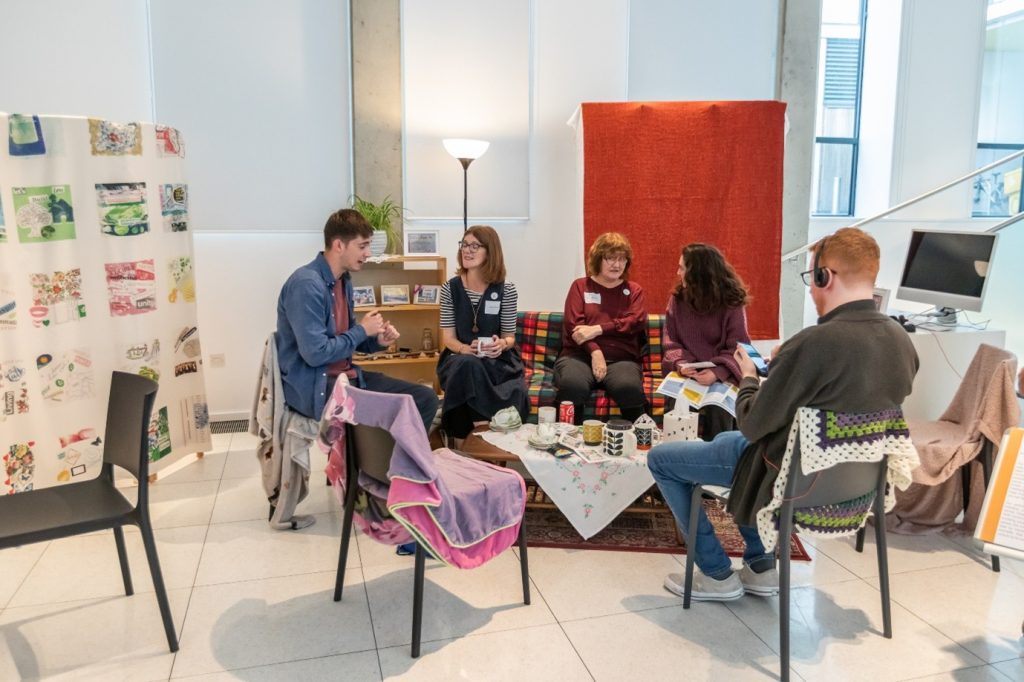
The Our Voices Midlothian Project
This government-backed, community-led initiative trained local parents in Midlothian to become ethnographic researchers. These parents engaged with over 60 families, gathering insights on what life is like in the area.
Their focus was on the cost of living and the impact of child poverty. The findings were then shared with the Scottish Government and Midlothian Council to inform and shape future policy changes.
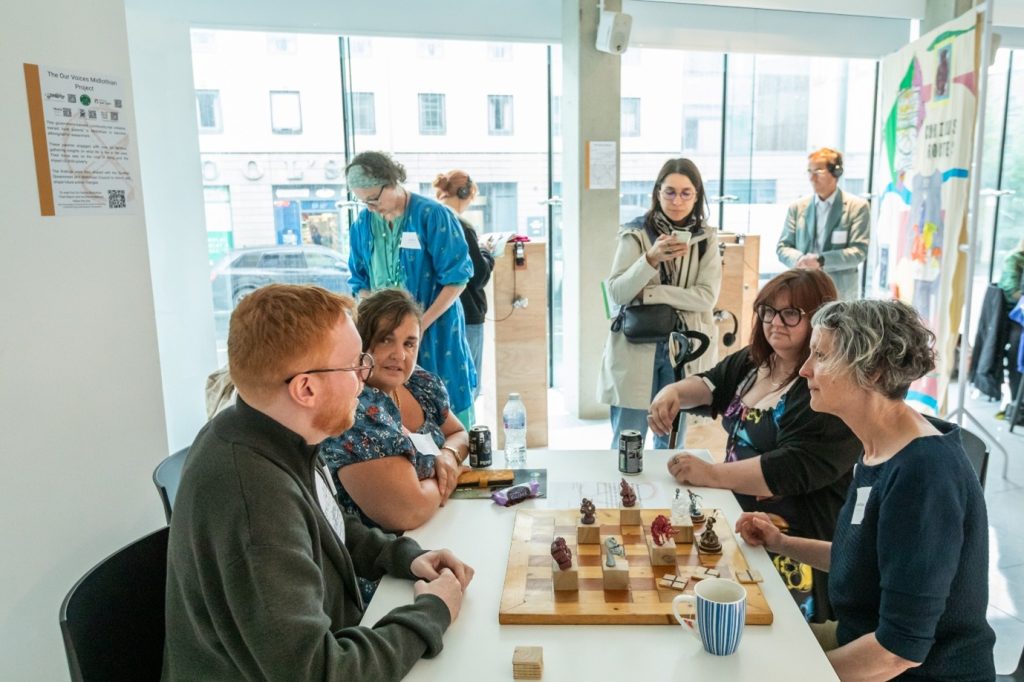
The Ripple: Past, Present, Future
This project used art-making sessions, social research, and fun activities to create these artworks with the communities of Lochend, Restalrig and Craigentinny. It focused on their hopes and demands for the future of their community, and offers a counterpoint to the kinds of data and research most commonly used to inform policies, funding decisions, and narratives.
Working in a non-hierarchical and participatory mode which foregrounded art and creativity and the full and rich humanity of the community offered the community members who joined us new ways to imagine their futures which were diverse and varied, but which coalesced around three key demands to help counter the impact of poverty and institutional neglect:
- The lived experiences and wisdom of community members to be at the heart of decision-making;
- Investment in more community spaces in the area;
- More community-run green spaces.
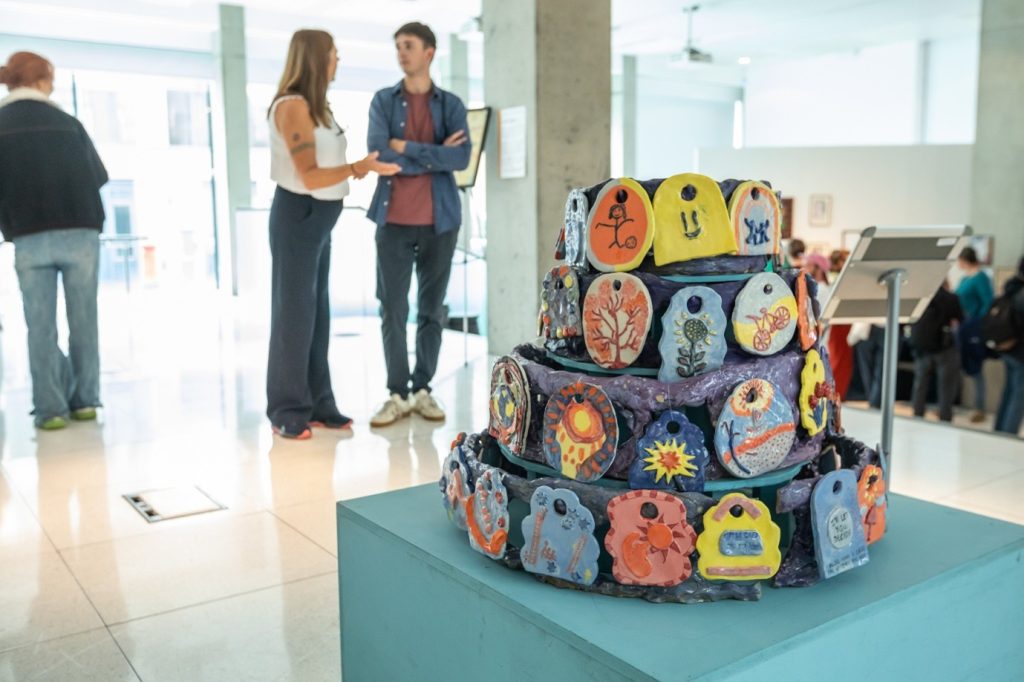
Curious Routes – A Cultural Commons for Mental Health
Artlink Curious Routes is the focus for community embedded research in Edinburgh as part of the groundbreaking UKRI REALTIES Research Programme. Through grassroots creative practice and dialogue we support project participants to share their skills and interests to establish networks of shared experience in their communities. These networks create a ripple effect, where common purpose and shared activity can help influence necessary change in how we tackle health inequalities.

Outwith: Participatory Research and the Library
The Outwith team is based at the University of Edinburgh Library, and works alongside projects across the institution to enable best practice in participatory research. Whether dubbed co-production, citizen science, or involvement, Outwith collaborates with and supports any research in which non researchers are actively involved in the research process.
With our five main partner projects, we recognise the value of participatory practices – as a key tool for community empowerment in all areas. It allows us to make discoveries that would otherwise be impossible, and opens the door to research; raising the voices of those who may otherwise not be heard.
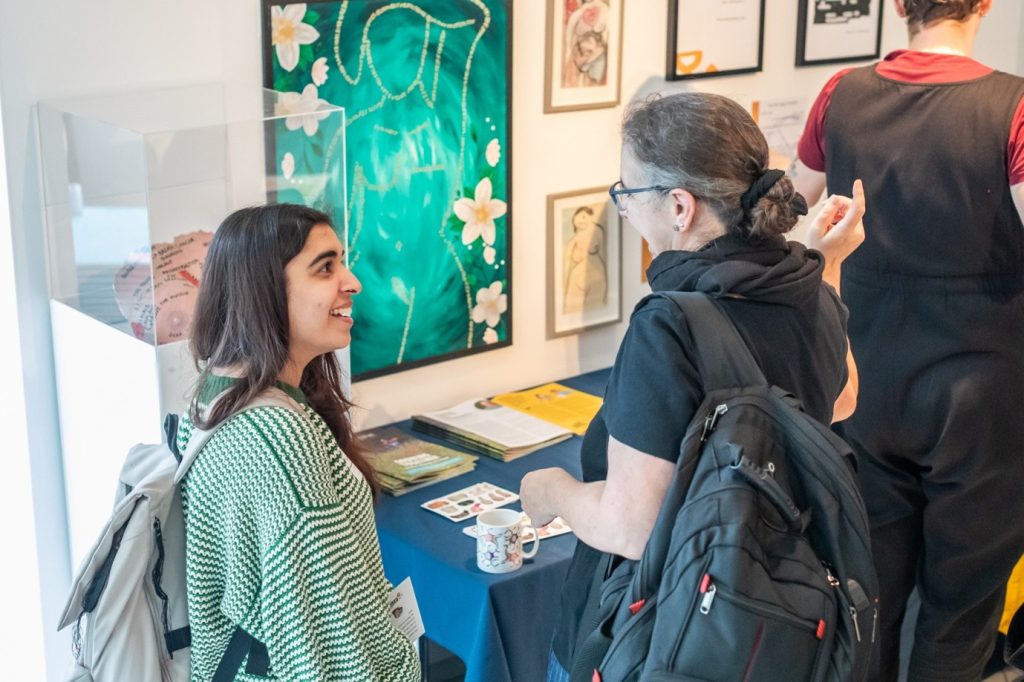
Forced displacement and lone parenthood: using participatory and arts-informed methods
Bryony Nisbet’s PhD project uses participatory collaging methods to explore how identity, social connectedness, and mental health and wellbeing are shaped by hostile immigration policy and the structural poverty it produces in the lives of forcibly displaced lone parents.
This collage was created by Bryony as part of her analytical process. It is built from torn consent forms, protocols, workshop and interview schedules, and written words and fragments of artwork made by those who participated, and it reflects on how people navigate systems that constrain belonging and choice.
Rather than presenting clear answers, the piece holds together the contradictions, pressures, and everyday strategies that forcibly displaced lone parents use to survive and connect in Scotland.
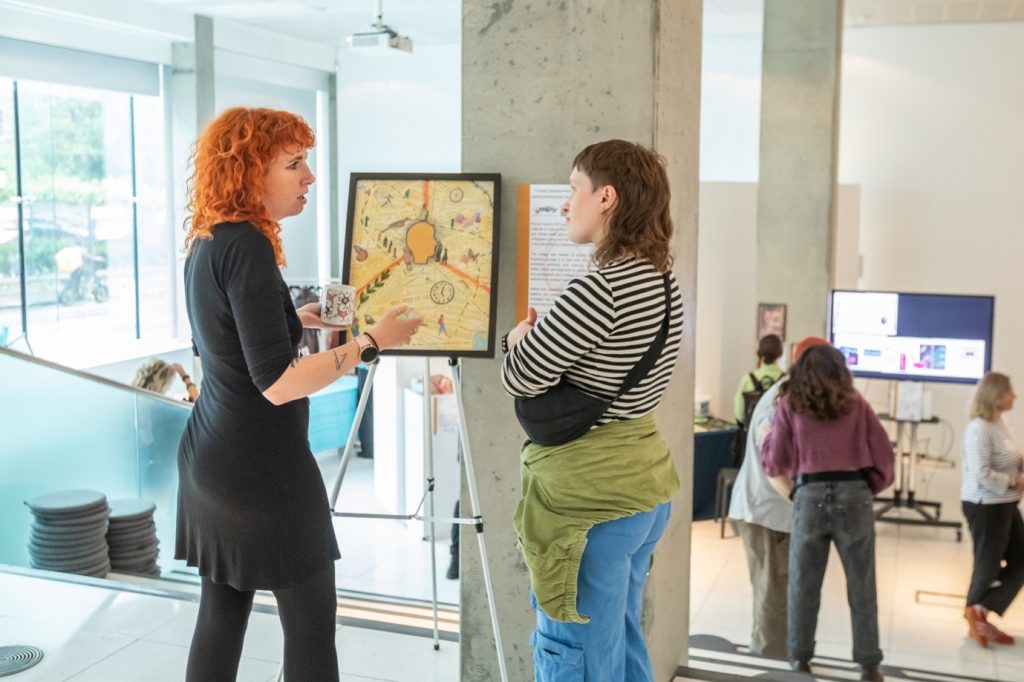
It was a joy to gather these project artworks together for the day, and we would love to hear from anyone who would be interested in collaborating on another exhibition or showcase of research in the future!
To find out more about these and other Binks Hub projects, visit our Research page.
Image credit: Chris Scott


